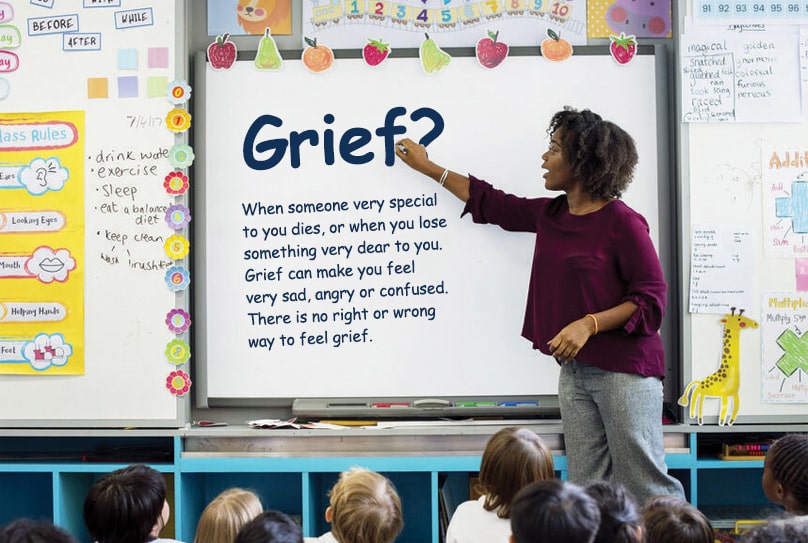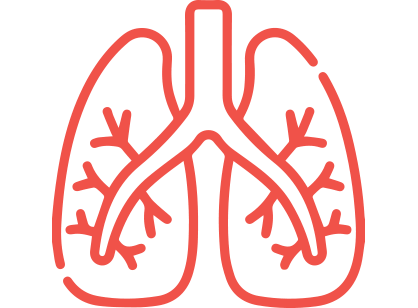
Ruth’s Legacy
Introduction
We are here because, after a terminal non- smoking lung cancer diagnosis in 2018 and nearing the end of her life, Ruth had a vision to help make a real difference to people’s lives.
Our Vision is two-fold, as guided by Ruth:
- Our society understands the importance of preparing for grief and how to help families ‘do death well’.
- The world knows better how to prevent and treat non-smoking lung cancers.
Three months after Ruth’s death, Sir Andrew Strauss set up the Ruth Strauss Foundation. After two hugely successful years of raising awareness of our cause and growing a network of loyal supporters, we are clear on how we will bring people together to build Ruth’s Legacy and make a real positive impact on people’s lives.
Find out how you can help and join the RSF in supporting families facing one of life’s toughest tests.
Contents
Foreword: Sir Andrew, Karina Murtagh
Our 3 Year Strategy
Our Mission: A Dual Focus
Family Mission
Non-Smoking Lung Cancer Mission
Solid Foundations
Connect with us
Founder & Husband
Sir Andrew Strauss
About Us”"Ruth wanted people to do death well"
Prior to Ruth’s diagnosis in December 2017, it would have been extremely difficult to imagine, believe or comprehend that in just over two years’ time, she would have both succumbed to the horrors of non-smoking lung cancer, and that a Foundation would also have been set up in her name.
For so many her story will be uncannily familiar. Cancer often strikes when people least expect it and progresses at a pace of its own choosing. For those who are diagnosed too late, or are unable to find a successful treatment, they have the hugely painful and unenviable task of preparing themselves and those around them for the inevitability of their death.
As Ruth bravely considered this towards the end of her life, her thoughts were almost exclusively centred on what her death would mean to the boys and myself, as well as what ‘good’ could come out of this dreadful situation.
The idea of the Foundation was hers. Aside from driving research into non-smoking lung cancers, she was determined to ensure that others going through what our family had encountered should have a support network available to help them navigate their way through their illness and help prepare the whole family for the death of a parent. She wanted people to ‘do death well’.
CEO Foreword
Why we are here & Ruth’s Vision
Ruth was diagnosed with incurable non-smoking lung cancer in 2017 and in only one year, Andrew and their amazing sons lost their dear wife and mum.
Ruth was one of the most caring, thoughtful and selfless people I have ever met. So much so that, just before she died, she and Andrew discussed how something positive could come out of their story.
That’s why we are here. Ruth felt strongly that all families who are told a parent doesn’t have much longer to live should have easy access to emotional support to get through it together; this simply isn’t offered widely across the UK right now. She knew that we must use her own family’s experience to transform how families are supported when preparing for grief … and that’s what we will do.
Ruth also realised there was a need for more collaboration and research into non-smoking lung cancers. We want to bring people together to progress this, so that the outlook for those with this terrible disease is much more positive.
Everything we do works towards achieving Ruth’s Vision. And by doing that, we are living true to our Purpose: To build a worthy legacy for Ruth that will make a real positive impact to people’s lives…which we are going to do well for you Ruth. This is our promise to you.
Karina Murtagh
CEO of Ruth Strauss Foundation
Our Spirit
Ruth’s legacy lives on in our values
Delivering our strategy in Ruth’s Spirit is key to how we operate and how we will achieve our mission. Ruth’s legacy and spirit are at the heart of the Ruth Strauss Foundation.
Our 3-year Strategy
Ruth’s Legacy
1/3
Ruth’s Legacy
Our 3 Year Strategy 2021-24
Our 3-year Strategy shows how we will support families to help parents start conversations with their children about their terminal diagnosis and demonstrates our approach to bring together the field of non-smoking lung cancer to initiate a global strategy. We hope it inspires you to join us.
Our Mission has a dual focus:
Our Family Mission:
To ensure that every family with a child facing the death of a parent is offered the professional emotional support they need to prepare the family for the future.
Our Research Mission:
To facilitate collaboration and influence research in the fight against non-smoking lung cancers, so that together we find the causes sooner and improve outcomes.
Ruth's Legacy has 5 Strategic priorities that will help us to achieve our Mission:
The Need
2/3
”“The death of a parent can leave a long-term impact on a child’s wellbeing”
Ruth felt strongly she and Andrew needed professional help on how they would manage conversations with their boys surrounding her diagnosis, death and dying. However, Ruth realised it wasn’t easy to find ‘pre-bereavement’ support. The benefits of bereavement support are widely recognised and available, but pre-bereavement support is not. There is inconsistency in support available for families with dependent children when a parent is diagnosed with a life-limiting illness and rarely is it ‘offered’.
The death of a parent can leave a long-term impact on a child’s wellbeing – research shows that how children are supported in the lead up to parental death can directly influence their ability to cope during bereavement. Research shows that children want parents to be open about their incurable illness, but parents and healthcare professionals often try to protect the child from the diagnosis. We also know that parents are seeking more support from healthcare professionals and teachers to enable these conversations, but currently there is not enough training and many professionals feel unprepared to have these conversations. We believe it is important to help families prepare for grief, death and dying by providing guidance to parents on how to start the difficult conversation with their children about their terminal diagnosis. By encouraging families to maintain an open and honest dialogue, children will be able to enjoy the time left with the dying parent, without internalising questions, worries or fears.
The Reality
Key Stats
To enable this support for families, we are looking to drive real cultural change, at scale, by supporting the health and education systems. It is our hope that, over time and with the RSF Training Programme, professionals will feel confident and skilled to guide parents on how to tell their child that they are dying.
What We Are Doing
Supporting Families
- Be the trusted destination for family pre-bereavement support
- Continue to support the system to support families
- Help society understand the importance of preparing for grief
THE NEED
There is no one place dedicated to providing parents with the guidance on how to talk with their child about their incurable diagnosis and prepare their family for the future.
WE WILL
Launch the RSF Family Support Service
Where families can seek guidance in online tools and resources or speak directly with an RSF trained advisor.
Collaborate
Work with other charities/bodies to support families through their grief journey.
AMBITION BY 2024
Offered support to over 6,000 families through RSF resources and our trained Pre-bereavement Guidance team.
THE NEED
Healthcare professionals and teachers feel ill-equipped to support families where a child is facing the death of a parent.
WE WILL
Launch the RSF Training Programme
Provide training and support to healthcare professionals and teachers, so they feel more confident and skilled in supporting families through their incurable diagnosis.
Influence Policy Makers
Engage with government and policy makers to help ensure that pre-bereavement support is recognised in care pathways.
AMBITION BY 2024
Offered training to over 4,000 healthcare professionals.
Piloted the RSF school and teacher support programme.
THE NEED
The benefits of bereavement support are widely recognised, but pre-bereavement support is not. If a child’s emotional support needs are unmet, this can impact their long-term well-being.
WE WILL
Be experience and insight led
Lead the case for pre-bereavement support grounded in evidence and co-design our support services via the RSF ‘experience-led panel’
Campaign for culture change
Raise awareness of why talking openly and honestly about death and dying and preparing for grief is essential. Especially for families with dependent children.
AMBITION BY 2024
Led a change in culture, where death is less of a taboo subject and pre-bereavement support is seen to be as vital as bereavement support.
Family SupportContact Deepa”We believe it is crucial to help families prepare for grief, death and dying by providing guidance on how to start the difficult conversation with a child about a parent’s terminal diagnosis. By encouraging families to maintain an open and honest dialogue, children will be able to enjoy the time left with the dying parent, without internalising questions, worries or fears.”
Deepa DoshiHead of Mission Services
Impact Measures
Our support for families will be measured by these simple outcomes
We will measure the quality of training and the value of the service we provide by evaluating the experiences of those supported by our Training Programme and Family Support Service. This will help us to understand the difference the support and training has made in their lives. Outcomes will be published annually in our Annual Report. We will demonstrate the impact our services have on the children, families, healthcare and education systems and society more widely.

Family Supported

Healthcare Professionals Trained

Teachers Supported
The Need
Research into Non-smoking Lung Cancers
Ruth was a fit and healthy woman who had never smoked, so the diagnosis of stage IV lung cancer came as a terrible shock. We are still learning about the causes of non-smoking lung cancers and there is an urgent need for more investment into non-smoking related lung cancer research, across the UK and worldwide.
Ruth felt that by better sharing of experiences, information and knowledge of non-smoking lung cancers globally, breakthroughs could come sooner.
Over the next three years we believe that we can use our profile and story to influence joined up thinking and collaboration, to help initiate a UK wide strategy, working towards a global strategy, for how we approach non-smoking lung cancers. By being part of a UK wide strategy for non-smoking lung cancers, we will better understand where there may be gaps in knowledge and research, towards which we can make a financial investment, both across the UK and worldwide.
Non-smoking lung cancers (NSLC) as a proportion of lung cancers are on the rise. It is estimated that 6,000 people in the UK die each year from non-smoking lung cancers and the number is growing. Three-quarters of NSLCs are diagnosed at a late stage, with around 35% of cases diagnosed via A&E in England, which are most likely to be stage IV. Lung cancer remains the UK’s biggest cause of cancer deaths, killing around 30,000 each year. Despite this, it receives just over 8% of all UK lung cancer specific research funding.

More women than men are diagnosed with NSLC

One in eight people with lung cancer have never smoked

of lung cancers are diagnosed via A&E in England

Lung cancer still kills 35,000 each year

Lung cancer only receives over 8% of UK cancer research funding
What We Are Doing
Non-Smoking Lung Cancers Research
THE NEED
There is currently no UK wide or global strategy around NSLC and there is a lack of collaboration and joint working around lung cancer research.
WE WILL
Initiate a Global Strategy
Deliver a programme of activity that brings together the field of non-smoking lung cancer (researchers/pharma/clinicians/ patients/charities) to initiate a UK wide strategy.
Learn from Patients
Work to ensure that the experiences of patients are at the heart of research.
AMBITION BY 2024
Supported a UK wide strategy and initiated a global strategy for non-smoking lung cancers.
THE NEED
Non-smoking related lung cancer is an underfunded field and there is more work to be done. From understanding the causes, to early diagnosis, to benefits of molecular testing and better treat- ment.
WE WILL
Engage Primary Care
Build our influence and increase awareness in the early diagnosis of NSLC across public health and Primary Care.
Raise the Profile
We will raise the profile of NSLC as an underfunded field to secure more investment and focus.
Collaborate
We will consider collaboration with other charities/bodies to jointly fund research initiatives.
AMBITION BY 2024
An increased awareness of NSLC across the UK public and with Primary Care professionals to drive earlier diagnosis and improve patient outcomes.
In partnership with other charities with similar non-smoking lung cancer aims, we will enhance our understanding of, and improve outcomes for, non-smoking lung cancers.
Solid Foundations
for Ruth’s Legacy
3/3
Solid Foundations for Ruth’s Legacy
Our first 3-year Strategy is bold and transformational, but we are building it on solid foundations, based around 3 core principles.
Sustainable, Scalable Delivery: We are approaching our Mission and the fundraising to finance these services with prudence and longevity. For each core service, fundraising campaign or event, we test and learn via a series of pilots and evaluations. We grow at a pace that is appropriate for the Foundation and Ruth’s Legacy scalability will be reviewed every six months.
Robust Infrastructure: Delivering the many functions the Foundation has in engaging supporters, professionals and families is an efficient infrastructure, which guides our planning and operations. The secure management of supporter data and our systems is paramount, as are our policies and processes which are regularly reviewed by our team and Board of Trustees. We will track our impact and report on expenditure to our many stakeholders, so they can understand the difference they have made.
The RSF Family is central to the success of Ruth's Legacy
- Team Red: Our outstanding Executive team living our Spirit daily.
- Our Friends: We are a small team with huge ambition, enabled by an incredible network of advisors, ambassadors, volunteers, families and organisations.
- Our Donors: Every donor, fundraiser and partner organisation is thanked personally, as Ruth would have done.
- Long Lasting Partnerships: Where possible, we seek a multi-year approach to corporate and delivery partners, to forge strong bonds. This will enable us to drive and finance our ambitious service delivery programme sustainably and with confidence.
- Cricket Community: The cricket family offers a powerful platform and unending, innovative support.
- Communities: We run year-round campaigns and events that everyone can engage with, including families and children.
- And finally, our Mission Champions: Healthcare workers, teachers, practitioners and all the incredible people who will provide support for families when they are facing the death of a parent.
Facts & Figures
Family Support Mission
- c23,600 parents with dependent children die in the UK each year
- Each year within the UK, c41,000 children under the age of 18 are bereaved of a parent
- This equates to a parent dying every 22 minutes, leaving behind 112 dependent children
- Parents are unsure how to talk with and prepare their children for the death of a parent
- Parents seek help from healthcare professionals to enable them to prepare and to support their children, yet healthcare professionals say they feel ill-equiped and under-prepared to offer this support.
Research Mission
- Lung cancer is England’s biggest cause of cancer death. Around 28,100 people die from lung cancer in England each year.
- 57% of lung cancer patients are diagnosed at stage IIIb or IV when curative treatment is no longer an option. This percentage is significantly higher than in other cancer types.
- Lung cancer in never-smokers is now the eighth most common cause of cancer-related death in the UK and the seventh most prevalent cancer in the world.
- It is estimated that nearly 6000 people who have never smoked die of lung cancer each year.
- ‘Never-smoker’ generally refers to someone who has smoked less than one hundred cigarettes in their lifetime.
- More women than men are being diagnosed with lung cancer.
Thank You For Reading
We’d love to stay in touch!
If you’d like to more information on RSF, Ruth’s Legacy or wish to join our RSF Family:


